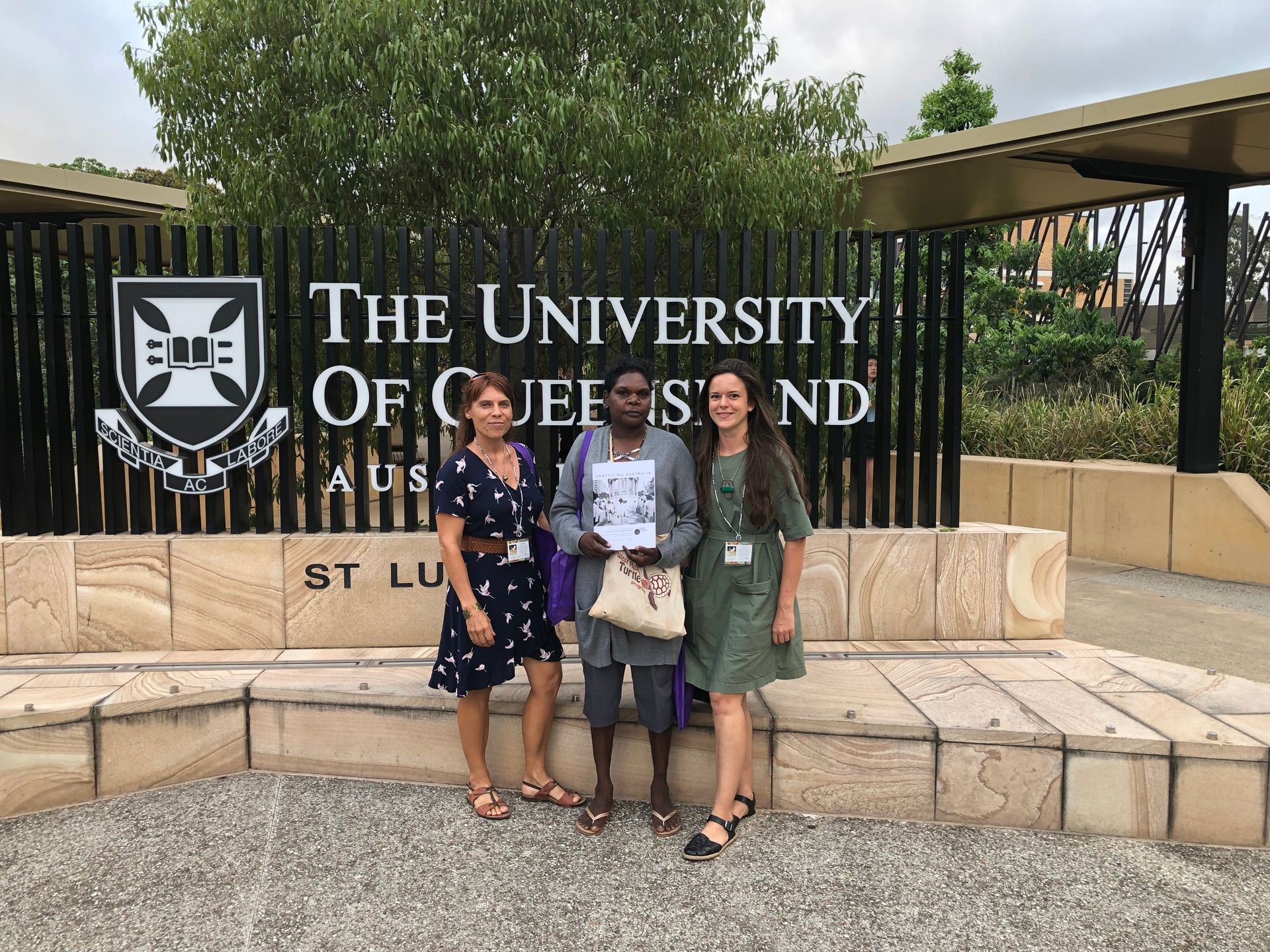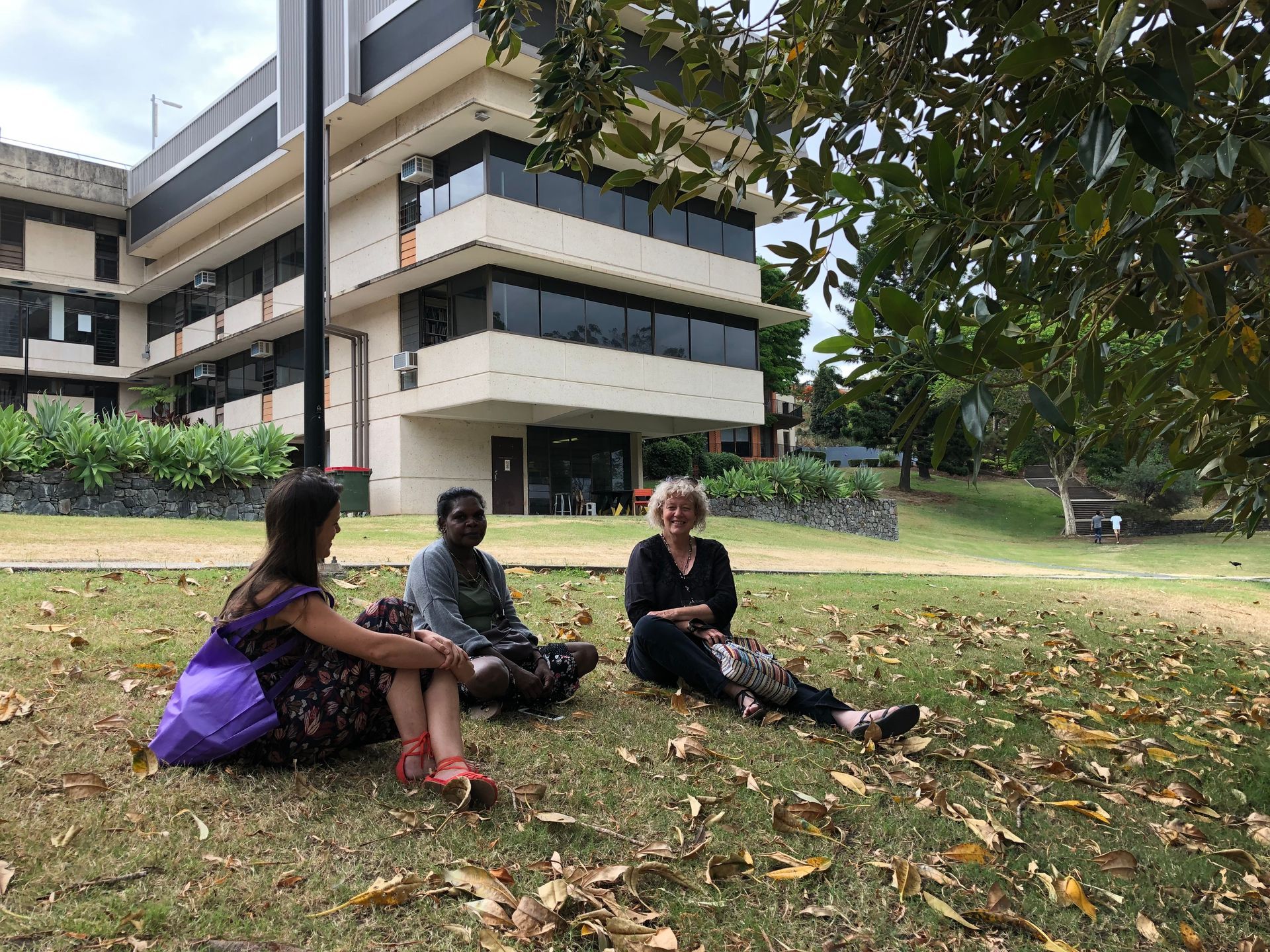Waanyi-Garawa ranger presents at international conference
Waanyi-Garawa ranger Josephine Davey, Ganalanga-Mindibirrina IPA coordinator Ostiane Massiani and NLC Caring for Country women and youth coordinator Kate van Wezel travelled to the University of Queensland in early December to present a paper at Unsettling Australia, the 2018 biennial conference of the International Australian Studies Association.

Ostiane Massiani, Josephine Davey and Kate Van Wezel at the Unsettling Australia Conference, December 2018.
They joined a large group of academics for three days of lectures covering a range of topics: colonialism and memory, contemporary feminism in action, everyday cultures of Australia, reconciling Country, decolonising practices and more.
The built-up nerves lasted a whole morning until Kate and Josephine introduced their collaborative work supporting women caring for country on the Ganalanga-Mindibirrina IPA, during Kate’s doctorate research from 2015 to 2018.
They explored the research question: what do women caring for Waanyi and Garawa country want collaborators to understand? Kate placed the talk into context, and Josephine — for whom this kind of public speaking was a first — bravely faced the interested parties and shared her background of her mother’s father’s country, what working on country means to her, and what expectations and hopes her family has for partnering with external people.
At the end of the shared presentation, numerous questions were aimed at Josephine, which continued throughout the conference.
Here is an excerpt of Josephine’s public talk: “Working together as rangers is a way to get back onto our country and learn about our home together. When my family and I met with Kate’s family, we all started learning from each other. Through research, we continued to build up women rangers from our elders’ knowledge. When we work with other people, we would like to bring it together as equal, to share knowledge with one another with respect, and to pass this experience to our children. I’m going to show a video of a new traditional dance about my father’s country where they are damaging our sacred site and homeland. We are teaching this dance, to show other people its meaning and its importance to my father’s father heritage so that we can teach our culture to everyone.”
We listened to multiple voices describing and analysing Aboriginality, culture, and responses to ongoing historical oppression. Many researchers advocated for a more egalitarian society, and some proposed legal and political strategies.

Kate Van Wezel, Josephine Davey and Dr Jane Palmer yarning at the University of Queensland.
On the third day, Josephine voiced her concern, confusion and hurt to a room full of academics that so few Aboriginal researchers were present. She expressed sadness that so few Aboriginal people had the opportunity to represent themselves in these conversations, and urged participants in the academic discourse to spend time with Aboriginal peoples and their communities, as this is requisite work to begin to understand their lived experience navigating today’s society and its fundamental ills.
The outcome was gratifying: presenters were responsive and a number of them spent the remainder of the day conversing with Josephine while sitting in the grass, under thick native trees while colourful water dragons popped their curious heads from beneath the leaf matter.
While the ongoing need to unsettle research was confronting at the conference, this refreshing close incited hope for meaningful collaboration.
